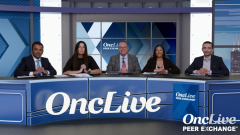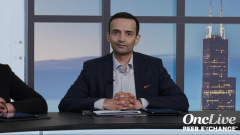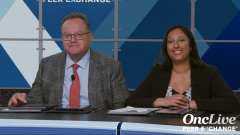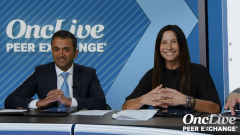
CAR T-Cell Therapy in RRMM: Adverse Event Management
Expert perspectives on how to manage adverse events associated with CAR T-Cell therapy in patients with relapsed/refractory multiple myeloma.
Episodes in this series

Transcript:
Ajai Chari, MD: We’ve heard a lot about efficacy. Cristina, can you tell us a little about toxicity management for CAR [chimeric antigen receptor] T-cell therapy?
Cristina Gasparetto, MD: We’re [still] learning a bit; we talked about CRS [cytokine release syndrome] and the level of toxicity. The one that scares us the most…we can manage the CRS with education. I think with one [CAR T treatment] it’s a little earlier than the other, a couple of days vs 7 days….
Krina Patel MD: With ide-cel [idecabtagene vicleucel] usually you see it on day 1 vs cilta-cel [ciltacabtagene autoleucel], which is around day 7.
Cristina Gasparetto, MD: Exactly. Which is important for our care, knowing these details is very important, when to expect the toxicity. But what scares me the most is the neurotoxicity. Particularly later on, you have to keep the patients under observation….
Krina Patel MD: I think the cytopenias too. That’s something, especially in our high-risk patients who also have a lot of tumor burden. We’ve seen that even 3 or 4 months later, they’re still having cytopenias. So, you have to make sure you’re watching those patients very closely. I think a lot of us are trying to figure out what to do with platelets of 10 and 7 weekly. People are trying different things, but we don’t have a standard of care yet on how to do that. There have been some patients who have gotten their autoimmune cells back. But even there, we’re not 100% sure that’s the right thing to do. If the CAR T is actually working, would we reverse something in that bone marrow? I think there’s a lot to learn still, but for the cytopenia, I have to give G-CSF [granulocyte colony-stimulating factor] every once in a while. We do the same thing with IVIG [intravenous immunoglobulin] right now, because those patients…. We actually presented some of the real-world data from ide-cel. We have about 195 patients that 10 different centers put together, and we’ve lost patients with COVID-19 during that time. I think it is really important to monitor all of that.
Ajai Chari, MD: Since you alluded to this, maybe somebody could expand a bit on the neurotoxicity. What are the mitigation strategies that have been mentioned in the management of neurotoxicity?
Krina Patel MD: I think with ide-cel specifically, there was 1 patient who apparently in the earlier line trials that we haven’t heard about yet had Parkinsonism. One patient. I haven’t seen it, so we haven’t had to deal with that, but there is ICANS [immune effector cell-associated neurotoxicity syndrome]. I’ve had a couple of patients with grade 1 or 2 ICANS, usually with CRS, but it doesn’t have to be. That’s where we use steroids. Toci [tocilizumab]works for CRS, but knowing the lymphoma, with axi-cel [axicabtagene ciloleucel] where we know we have a lot of ICANS, that’s usually where we give a dose of dex [dexamethasone]. Sometimes we give it for a few days, but so far we’ve had that resolve, no cerebral edema or anything we used to see with patients with lymphoma. I haven’t really seen that at all with myeloma.
Ajai Chari, MD: Have you implemented handwriting monitoring?
Krina Patel MD: Yes. We do handwriting every day. We have their caregivers monitor too. We ask them about the ICE [immune effector cell encephalopathy] score that we have, the 10 questions to make sure they score well. And if they’re not scoring well, that’s when I get called, so we can figure out if we need to give dexamethasone.
Ajai Chari, MD: Early recognition and steroids.
Krina Patel MD: Exactly.
Transcript edited for clarity.








































